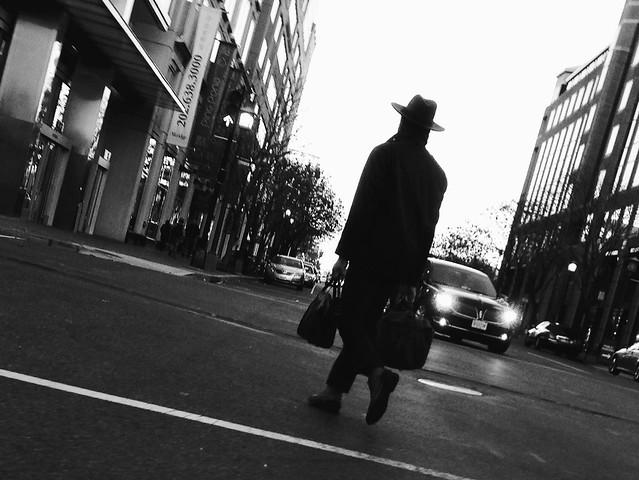From the exhibit halls and the bookshelf: Spies out in the Cold
Posted By Stephen Loosley on May 22, 2019 @ 11:11

At first thought, the Whitlam Institute on the campus of Western Sydney University is an odd place to have an exhibition supported by the Australian Security Intelligence Organisation and dedicated to espionage in Australia. After all, it was Gough Whitlam’s attorney-general, Lionel Murphy, who staged the infamous ‘raid’ on ASIO’s Melbourne headquarters early in the life of that Labor government. Murphy was convinced that ASIO was withholding material from him.
Now ASIO’s headquarters are in Canberra by Lake Burley Griffin and named after Labor prime minister Ben Chifley. It was Chifley who acted to form the nascent spying agency in 1949 in response to pressure from both the British and the Americans at the outset of the Cold War.
But as this interesting exhibition [1] makes clear, Australian espionage dated from well before then. It continued through both world wars, and on into the confrontation between the West and the Soviet empire, crystalising in 1954 with the defection of the third secretary at the Soviet embassy in Canberra, Vladimir Petrov. Petrov’s defection laid bare the extent of attempted Soviet penetration of Australian institutions. The clumsy attempt to return his wife to Moscow underlined the brutality of the Soviet system.
Domestically, the Petrov affair was skilfully exploited by Prime Minister Robert Menzies with unfortunate assistance from an inept leader of the Labor opposition, H.V. ‘Doc’ Evatt. Thus, the exhibition sketches the domestic realities of the day that drove counterespionage from May Day marches to the Moratorium demonstrations against the Vietnam War. Several of the photographs are fascinating, and some of the tools of the trade on display, such as Soviet communication devices, are intriguing. This may be entry level only for people interested in counterespionage, but it is well worth the effort to visit. (The exhibition closes on 24 May, though, so you’ll need to be quick.)
It is a healthy sign in any democracy when its primary security agency is prepared to discuss its history openly. Various directors-general of ASIO, including the incumbent, Duncan Lewis, have often been prepared to speak as frankly as possible before the parliament and to the public and community organisations. As Thomas Jefferson mused, the strongest democracy is one based on an informed citizenry.
Ben Macintyre’s The spy and the traitor [2] also represents an opening up of the archives from the Cold War. The agency is Britain’s MI6 and Macintyre details graphically and compellingly the story of the exfiltration of MI6’s most highly placed Soviet agent, the KGB’s London rezident, Oleg Gordievsky.
Gordievsky had grown disillusioned with the Soviet system, especially after postings in the West in civilised cities such as Copenhagen. He was from the Soviet elite, and his father had been a KGB officer before him. But as with certain members of the ‘Cambridge Apostles’, privilege bred a deep scepticism of, and ultimately hostility towards, the prevailing economic and social system. In this, Gordievsky was the other side of the coin to Kim Philby, Donald Maclean and Guy Burgess.
Gordievsky served his British masters brilliantly. He was an impeccable source whose knowledge led to arrests of Soviet spies within the NATO countries and to a comprehensive understanding of the driving imperatives of the KGB. (By the way, certain figures within the KGB hierarchy were so appalling that it’s possible to conclude that Ian Fleming’s classic, From Russia with love, may be fiction, but it is surely based on fact.)
On the other side of the Atlantic, within the confines of Langley, Virginia, is another spy in the form of the CIA’s Aldrich (Rick) Ames. Ames is arguably the most disgusting traitor ever to disfigure the agency. He sold out his country for money. Greed was his sole motivator which served a personality characterised by disaffection and dissatisfaction.
Ames’s treachery cost dozens of American agents their lives. He was as injurious to American espionage as Kim Philby was in his destruction of Britain’s post-war efforts in the Baltic states. Deservedly, Ames is serving a life sentence for treason.
This brings us to the core of Macintyre’s outstanding effort. Ames’s treachery results in the KGB identifying Gordievsky as a traitor and he is recalled to Moscow from London.
By a predetermined plan, MI6 exfiltrates Gordievsky out of the Soviet Union to Finland and then on to Norway and the UK. It is a magnificently efficient operation.
Although all of this happened more than 30 years ago, one wonders why MI6 would now be so open about its tradecraft. Perhaps Gordievsky did escape this way, or perhaps MI6 is still concealing the real methods by which their invaluable agent was rescued.
Ben Macintyre has written another wonderful account of espionage at its most dangerous. It ranks with his incisive A spy among friends [3], which exposed in detail the failure of Britain’s secret services to appreciate that Kim Philby was a dedicated traitor. That book was truly revealing, and The spy and the traitor is in the same class in the history of recent espionage.
Article printed from The Strategist: https://aspistrategist.ru
URL to article: /from-the-exhibit-halls-and-the-bookshelf-spies-out-in-the-cold/
URLs in this post:
[1] this interesting exhibition: https://www.whitlam.org/events/spy
[2] The spy and the traitor: https://www.penguin.com.au/books/the-spy-and-the-traitor-9780241972137?v=2&utm_expid=.JC69wDioR_Kc4RimyKASfg.1&utm_referrer=https%3A%2F%2Fwww.google.com%2F
[3] A spy among friends: https://www.bloomsbury.com/uk/a-spy-among-friends-9781408851722/
Click here to print.